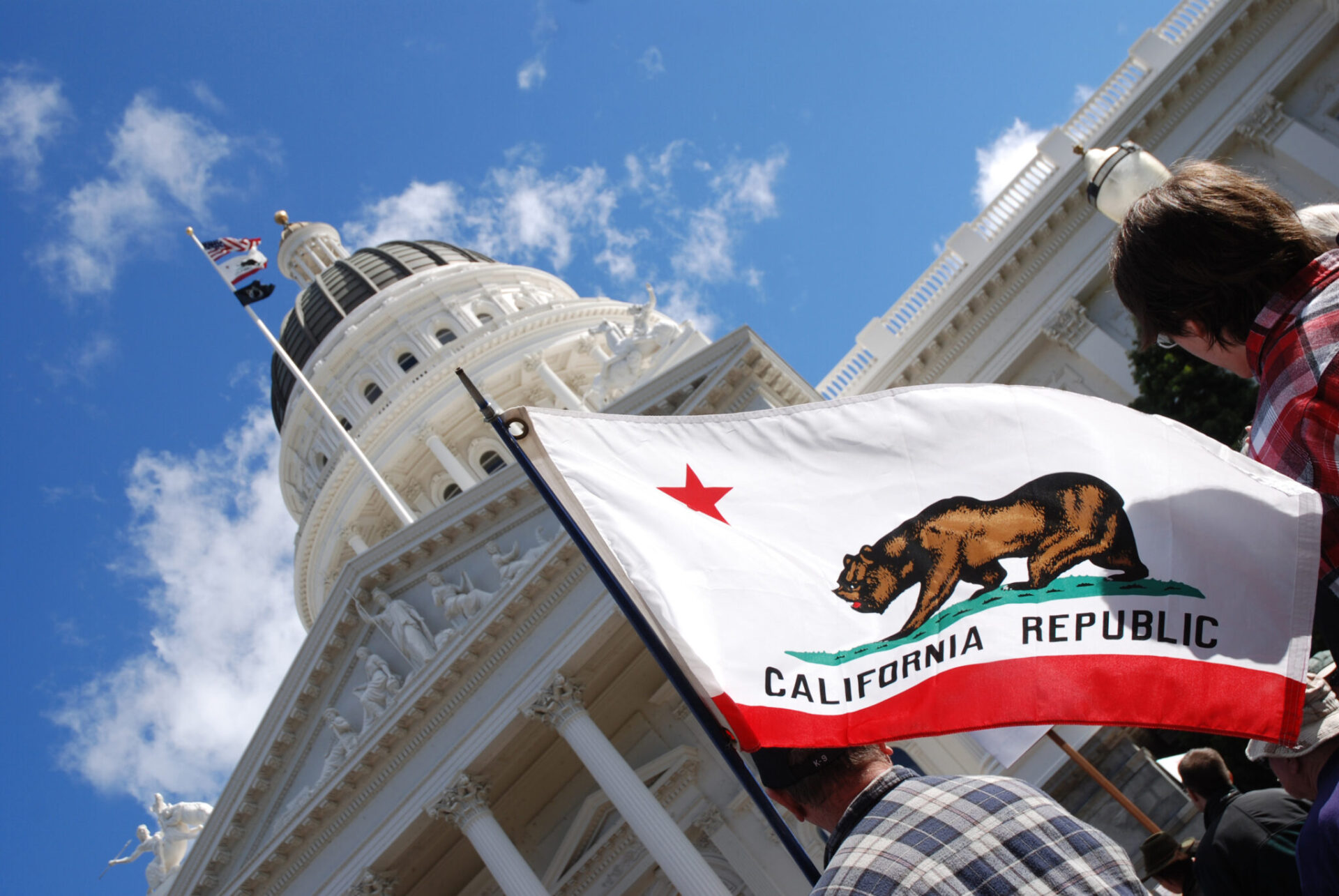
In the year of the COVID-19 pandemic, legislation in California was somewhat subdued, at least by usual California standards. COVID-19 definitely had an impact on legislation and how legislation was handled, as the legislative session was dramatically shortened and most outside people were banned from actually being in the Capitol. This made for incredibly challenging circumstances for those that have to fight legislation and are usually in Capitol offices on a daily basis. But that works both ways, and in the end, maybe that is what kept what could have been a bad year from being overly bad for industry, particularly agriculture.
In 2020, Democrats controlled both the Assembly and the Senate and every statewide office. But with a truncated session due to COVID-19, and with COVID-19 staring everyone in the face, it ruled the Capitol, as most legislation dealt directly with COVID-19 or items related to COVID-19 such as worker protections. That’s not to say there weren’t attempts to go beyond COVID-19. This is California after all.
Key Legislation
Here are the key bills the tree nut industry grappled with in 2020.
AB 196 (Gonzalez)
This legislation would have created a permanent and indisputable legal presumption that all COVID-19 infections suffered by “essential workers” are work related for purposes of workers’ compensation benefit eligibility. This proposal violated any reasonable standard of fairness that could possibly be expected by employers across our state, and it would have diverted vital resources away from recovering businesses and stretched state and local budgets. This bill died in the Senate.
AB 685 (Reyes)
AB 685 creates a “notice” to employees and authorities upon exposure to COVID-19 in the workplace. Unfortunately, it utilizes three different definitions of who must receive notice and is vague as to exactly what documents must be provided as part of that notice. Moreover, it will certainly result in over-warning, as large employers may be forced to send daily emails to every single employee in California. Finally, it contains a publication provision which will not help employee safety and fails to distinguish between employers who take appropriate steps to keep their workplaces safe and those who fail to do so. This legislation passed out of the legislature and was signed into law.
AB 1066 (Gonzalez)
This bill includes impossible response timelines for unemployment documents and will short-circuit AB 5’s analysis by cutting off employers’ due process. It would have put in statute a 10-day timeline to respond to any mailed demand for information from the Employment Development Department (EDD), and if an employer fails, will punish them by assigning the claiming employee’s maximum benefits. This 10-day timeline is problematic enough, given the disruption most businesses are facing and EDD’s own delay issues. However, in addition, for employers with five or more claimants, AB 1066 will assign maximum benefits to all claiming employees if one document request is not responded to within the 10-day time window. Thankfully, this bill was vetoed by the Governor.
AB 1659 (Bloom)
This bill was a last minute “gut and amend” bill that would have created a new $3 billion fund and charge those expenses to ratepayers served by the three major investor-owned utilities (IOUs), but not others by extending a 5 cent/kWh surcharge on electricity through 2050. Tree nut hullers and processors would have been saddled with an estimated $7,000 to $43,000 in additional disproportionate annual electricity costs. Furthermore, the money generated by this surcharge would have spent the money on random issues that have nothing to do with wildfires, such as $100 million on workforce training, $50 million to ARB for alternatives to pile burning, $300 million to Strategic Growth Council for cooling centers and backup solar power, and others. In one of the most controversial bills of the session, industry adamantly opposed this bill, and it died in the Senate.
AB 1788 (Bloom)
This bill prohibits the use of any second-generation anticoagulant rodenticide (SGAR) in this state until the Department of Pesticide Regulation has completed a reevaluation of SGARs and, in consultation with the Department of Fish and Wildlife, has adopted any additional restrictions necessary to ensure that continued use of SGARs is not reasonably expected to result in significant adverse effects to non-target wildlife. WAPA opposed this legislation until language was added exempting agricultural operations conducted in certain locations. This bill was signed and chaptered.
AB 2043 (Rivas)
This bill requires Cal/OHSA to disseminate, in both English and Spanish, information on best practices for COVID-19 infection prevention, including, but not limited to, the Guidance Document entitled, “Cal/OSHA Safety and Health Guidance: COVID-19 Infection Prevention for Agricultural Employers and Employees.” The bill would also require Cal/OSHA to conduct a statewide outreach campaign, targeted at agricultural employees, to assist with the statewide dissemination of the best practices information and to educate employees on any COVID-19 related employment benefits, including access to paid sick leave and workers’ compensation. It also requires the campaign to include public service announcements on local Spanish radio stations and the distribution of workplace signs. The bill would require the division to routinely compile and report, via its website, information relating to the subject matter, findings and results of any investigation relating to practices or conditions prescribed in the Guidance Documents or a COVID-19 illness or injury at a workplace of agricultural employees. The bill would also direct the division to enforce the Guidance Documents. Unfortunately, this legislation was signed by the Governor.
AB 2145 (Ting)
This bill would require the California Public Utilities Commission (CPUC) to direct electrical corporations to file applications for programs and investments to accelerate widespread transportation electrification to meet the goal of installing at least 1,000,000 electric vehicle charging ports by December 31, 2030 at ratepayer’s expense. As large users of electricity, our member hullers and processors would have paid a disproportionate share of the costs of that program. Facing stern industry opposition, the bill died in the Assembly.
AB 3216 (Kalra)
AB 3216 is a costly and onerous bill that requires covered employers to offer to recall laid-off workers by seniority, and to provide such employees at least ten business days to respond. AB 3216 would require the employer to offer a position to the most senior employee, then wait ten business days for the employee to accept or reject the offer to return to work before moving on to the next most senior employee. Depending on the size of the employer, this could delay the reopening process for weeks, months or years. AB 3216 also requires covered employers not only to offer to rehire employees who held the same position, but to also offer the position to any employee who “is or can be qualified for the position.” AB 3216 subjects a covered business to an entirely new private right of action and imposes costly liability for hiring and reinstatement rights, front and back pay calculated at specified highest rates of pay and the value of any benefits the employee would have received. AB 3216 also includes a one-sided attorney’s fee provision that provides that mandatory attorneys’ fees shall be awarded only to the prevailing employee – which will further incentivize costly litigation against employers even over minor and technical violations. For many of these reasons, this legislation was vetoed by the Governor.
SB 559 (Hurtado)
What started as providing $400 million in funding to restore the Friant-Kern Canal, this legislation would require the Department of Water Resources to report to the legislature no later than March 31, 2021 on federal funding approved by the U.S. Congress in its 2021 Congressional Budget Resolution and related appropriations bills or otherwise provided to the Friant Water Authority or other government agency to restore the capacity of the Friant-Kern Canal, as specified. The bill would require the department to include in its report a proposal for the state to pay a share of the project cost, not to exceed 35%, and how the money will be spent. The bill made it to the Governor’s desk where he vetoed the bill, but committed to addressing this issue in the coming year.
SB 662 (Archuleta)
This bill would include use of green electrolytic hydrogen as an alternative transportation fuel and would revise the definition of “transportation electrification” to include the use of renewable hydrogen when used directly in fuel cell electric vehicles. The bill would require energy ratepayers to cover the cost of this program. This bill would require not less than 33.3% of the hydrogen produced or dispensed in California for motor vehicles be renewable hydrogen. The bill would require that the renewable hydrogen percentage be increased to 44% by December 31, 2024, 52% by December 31, 2027, 60% by December 31, 2030, and 100% by December 31, 2045. This legislation died in the Assembly.
SB 1159 (Hill)
This bill would create a disputable presumption that an essential worker who contracts COVID-19 contracted the disease as a result of their employment. This would result in an extension of workers compensation benefits to employees as a result. This bill was signed into law.
Looking Ahead
As 2021 comes into focus, we start the year much the same way we did in 2020; with Democrats controlling both the Assembly and the Senate as well as all statewide offices. With the Election of President Joe Biden and Vice President Kamala Harris, there has been somewhat of an exodus with Secretary of State Alex Padilla being appointed to replace Harris in her U.S. Senate seat and State Assemblywoman Shirley Weber being appointed to Secretary of State to replace Padilla.
In addition, Biden named Attorney General Xavier Becerra as his Secretary of Health and Human Services, thereby creating another opening to be filled, possibly from the legislature as well. We believe several other moves will be made at the staff level, and in fact that has already happened with the Governor’s Chief of Staff Ann O’Leary, who is also headed back to Washington, D.C. In terms of legislation, more than 100 bills have already been introduced when everyone was sworn in, and they give us a flavor of what’s to come.
We can expect to see legislation on pesticides, plastic packaging, climate change and more bills on COVID-19. And on the regulatory side, we have four new board members on the California Air Resources Board (CARB), including a new chair. That development left a key vacancy on the California Public Utilities Commission (CPUC), and we expect a change on the State Water Resources Control Board, too. With all that said, it’s time to get back up on our feet and do it all over again. Y’all might want to hold on!















